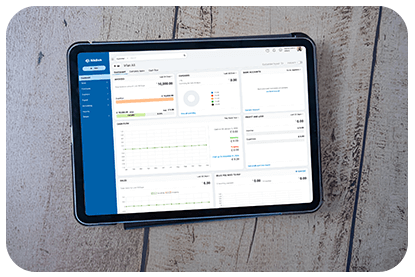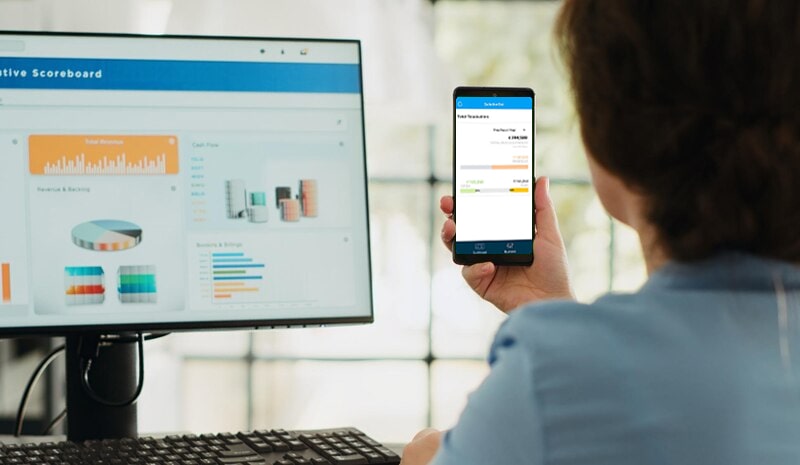19 April 2024
Mastering Expense Management: Tips for Financial Control
Effective expense management is a crucial part of achieving financial stability. Whether you’re aiming to save for the future, eliminate debt, or just maintain better control over your spending, managing expenses is key to reaching your financial goals. This blog will walk you through essential tips to master expense management and gain control of your finances.
1. Create a Expense Management Comprehensive Budget
The first step toward mastering expense management is creating a budget. A budget helps you track your income, expenses, and savings goals, giving you a clear picture of your financial situation. Begin by listing all your sources of income and categorizing your monthly expenses into fixed costs (like rent, utilities, and insurance) and variable costs (such as groceries, entertainment, and transportation).
Once you have a clear overview, allocate a specific amount to each category, ensuring that you leave room for savings. This approach will help you avoid overspending and stay focused on your financial priorities.
2. Track Your Spending Regularly
Tracking your spending is essential for staying on top of your budget. You may find it difficult to adhere to your financial plan without regularly reviewing where your money is going. Utilize budgeting apps or spreadsheets to track expenses in real time. This allows you to see if you’re sticking to your budget and make adjustments when necessary.
Tracking your spending also helps identify areas where you can cut back. For example, you may realize you’re spending more than expected on dining out or subscription services. Regular tracking helps you stay mindful of your financial decisions.
3. Cut Back on Non-Essential Expenses
Once you track your spending, it’s easier to identify unnecessary expenses. Cutting back on non-essential spending can help free up money for more important financial goals, such as saving for emergencies or paying off debt. Start by reviewing your subscriptions streaming services, gym memberships, and magazines that you rarely use.
Next, examine discretionary spending like dining out, shopping, or entertainment. Limiting these indulgences can make a significant difference in your monthly budget. Opting for at-home meals, canceling unused memberships, or taking advantage of free activities can help reduce unnecessary expenses.
4. Prioritize Savings and Debt Repayment
An essential part of managing expenses is prioritizing both savings and debt repayment. After budgeting for fixed and variable expenses, allocate a portion of your income to savings. Aim for a goal of saving at least 20% of your income if possible. Building an emergency fund is critical to avoid financial stress when unexpected expenses arise.
When managing debt, make sure to prioritize high-interest debt like credit cards before tackling loans with lower interest rates. If necessary, consider debt repayment strategies like the snowball method or avalanche method, which can help you pay off debt more efficiently.
5. Avoid Impulse Purchases
Impulse purchases are one of the biggest barriers to effective best expense tracking app. These spontaneous buying decisions, often triggered by emotional impulses, can derail your budget. To avoid impulsive spending, try implementing the 24-hour rule: whenever you feel the urge to buy something non-essential, wait 24 hours before making the purchase. This cooling-off period can help you determine if it’s truly a necessity.
Additionally, create a shopping list before heading to the store and stick to it. By focusing on what you need rather than what you want in the moment, you can prevent unnecessary purchases that negatively affect your budget.
6. Automate Payments and Savings
To make expense management easier, automate your financial commitments. Set up automatic payments for bills such as utilities, subscriptions, and loans to avoid late fees. Automating your savings is just as important. By setting up automatic transfers to a savings or retirement account, you ensure that a portion of your income is always saved without you having to think about it.
Automating both your savings and bill payment eliminates the risk of forgetting to pay a bill and helps you stay consistent with your financial goals. The less you have to manage manually, the more in control you’ll feel over your finances.
7. Plan for Large Expenses
Large expenses, such as vacations, home repairs, or buying a car, can disrupt your financial plan if you don’t prepare in advance. Instead of waiting until the expense is due, start saving for it ahead of time. Set aside a specific amount each month in a separate account so you have the funds ready when the time comes.
Planning for large expenses prevents you from relying on credit cards or loans, which could lead to debt. By anticipating these costs and building them into your budget, you reduce the likelihood of financial stress when they arise.
8. Review Your Financial Goals Regularly
Financial goals often change over time, so it’s essential to review them regularly. Whether your goal is to save for a home, pay off student loans, or build a retirement fund, staying focused on your objectives is key to managing your expenses effectively. Break down your long-term goals into smaller, achievable milestones to maintain motivation and measure progress.
Additionally, periodically reassess your goals as your income, expenses, or life circumstances change. If you receive a raise or reduce monthly expenses, consider adjusting your goals to reflect your new financial situation.
9. Make Smart Use of Credit
While using credit can be part of a healthy financial strategy, it’s important to be mindful of how and when you use it. Credit cards often come with high-interest rates, and accumulating debt can negatively affect your credit score. To manage expenses effectively, avoid relying on credit for non-essential purchases and pay off any balances in full each month to avoid interest charges.
When using credit, opt for cards that offer rewards, cashback, or other benefits that align with your spending habits. This way, you can benefit from using credit while avoiding unnecessary debt.
10. Educate Yourself on Personal Finance
Lastly, investing in your financial education is a crucial step in mastering expense management. Read books, listen to podcasts, or take online courses about personal finance to learn strategies for managing money more effectively. The more you understand about budgeting, investing, and debt management, the better equipped you’ll be to make informed decisions about your money.
Expanding your knowledge of financial concepts will help you build a more secure financial future, making it easier to manage your expenses and achieve your financial goals.
Read More About: How to Keep Track of Business Expenses
Conclusion
Mastering expense management is about making intentional choices, prioritizing your financial goals, and staying disciplined. With a clear budget, regular tracking, and mindful spending, you can gain greater control over your finances. By saving, avoiding unnecessary purchases, and preparing for large expenses, you can lay the foundation for a more secure financial future. Start implementing these tips today, and take the first step toward financial freedom.




